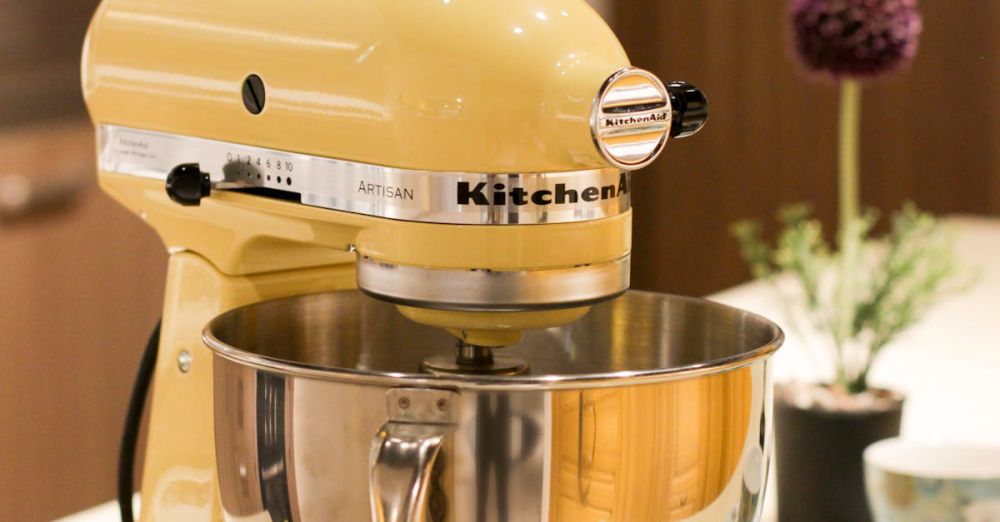What Features to Look for in Energy-efficient Appliances
As energy costs continue to rise and environmental concerns grow, energy-efficient appliances have become increasingly popular among consumers. These appliances not only help reduce electricity bills but also minimize one’s carbon footprint. When evaluating energy-efficient appliances, it’s crucial to know what features to prioritize to maximize efficiency and savings. Here’s a closer look at key features that can guide your purchasing decisions.
Energy Star Certification
One of the most recognized symbols in energy efficiency is the Energy Star label. Appliances that meet the strict criteria set by the Environmental Protection Agency (EPA) are awarded this certification. When searching for energy-efficient options, always look for the Energy Star logo. It indicates that the appliance has been tested and verified to consume less energy than standard models. This certification can apply to a wide range of appliances, including refrigerators, dishwashers, washing machines, and HVAC systems.
Smart Technology Integration
The rise of smart home technology has revolutionized energy efficiency. Many modern appliances now come equipped with smart features that allow users to monitor and control energy consumption remotely. For instance, smart thermostats can learn your habits and adjust temperatures to optimize energy use, while smart washing machines can schedule cycles during off-peak hours. When shopping for appliances, consider those that offer smart technology, as they can provide valuable insights into energy usage and help you make more informed decisions.
Size and Capacity
When selecting an energy-efficient appliance, the size and capacity must align with your household needs. An oversized appliance will consume more energy than necessary, while one that is too small may not meet your requirements, leading to inefficient usage. For instance, choosing a refrigerator with the right capacity ensures that it operates efficiently without straining to keep items cool. Assess your space and lifestyle to determine the appropriate size before making a purchase.
Energy Consumption Ratings
Appliances often come with energy consumption ratings that detail their efficiency levels. These ratings can usually be found on the appliance’s label and are expressed in kilowatt-hours (kWh) per year. A lower kWh rating indicates better efficiency, which can lead to significant savings over time. When comparing models, pay attention to these ratings, as they provide a clear picture of how much energy you can expect to use annually.
Variable Speed Motors
For appliances like refrigerators, dishwashers, and air conditioners, variable speed motors can significantly enhance energy efficiency. Unlike traditional motors that operate at a fixed speed, variable speed motors adjust their speed based on demand. This means they can run at lower speeds during less intensive tasks, reducing energy consumption. Look for appliances with this feature, especially if you frequently use them.
Heat Pump Technology
In heating and cooling appliances, heat pump technology has emerged as a game-changer. Heat pumps transfer heat rather than generate it, making them highly efficient. They can provide both heating and cooling, depending on the season, and often use less energy than conventional systems. When considering HVAC systems or water heaters, explore options featuring heat pump technology for optimal energy savings.
Durability and Warranty
A durable appliance can contribute to energy efficiency over its lifespan. Appliances that require frequent repairs or replacements can lead to increased energy use and waste. Look for models made from high-quality materials and backed by robust warranties. A longer warranty often indicates manufacturer confidence in the product’s durability, ultimately saving you money in the long run.
User-Friendly Features
Energy-efficient appliances should be easy to use and offer features that promote efficiency. Look for intuitive controls, programmable settings, and easy-to-understand user manuals. For instance, a washing machine with a delay start feature allows you to take advantage of lower energy rates during off-peak hours. User-friendly features can enhance your experience while ensuring that you maximize energy savings.
Making an Informed Choice
In the quest for energy-efficient appliances, understanding the key features can make all the difference. Prioritizing Energy Star certification, smart technology, appropriate size, energy ratings, and durability will guide you toward making informed choices. Embracing these appliances not only contributes to a sustainable future but also results in significant savings on your energy bills. As you explore your options, keep these features in mind to ensure that your investment aligns with your values and financial goals.







